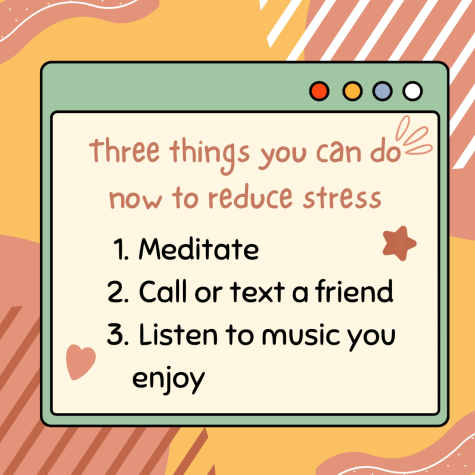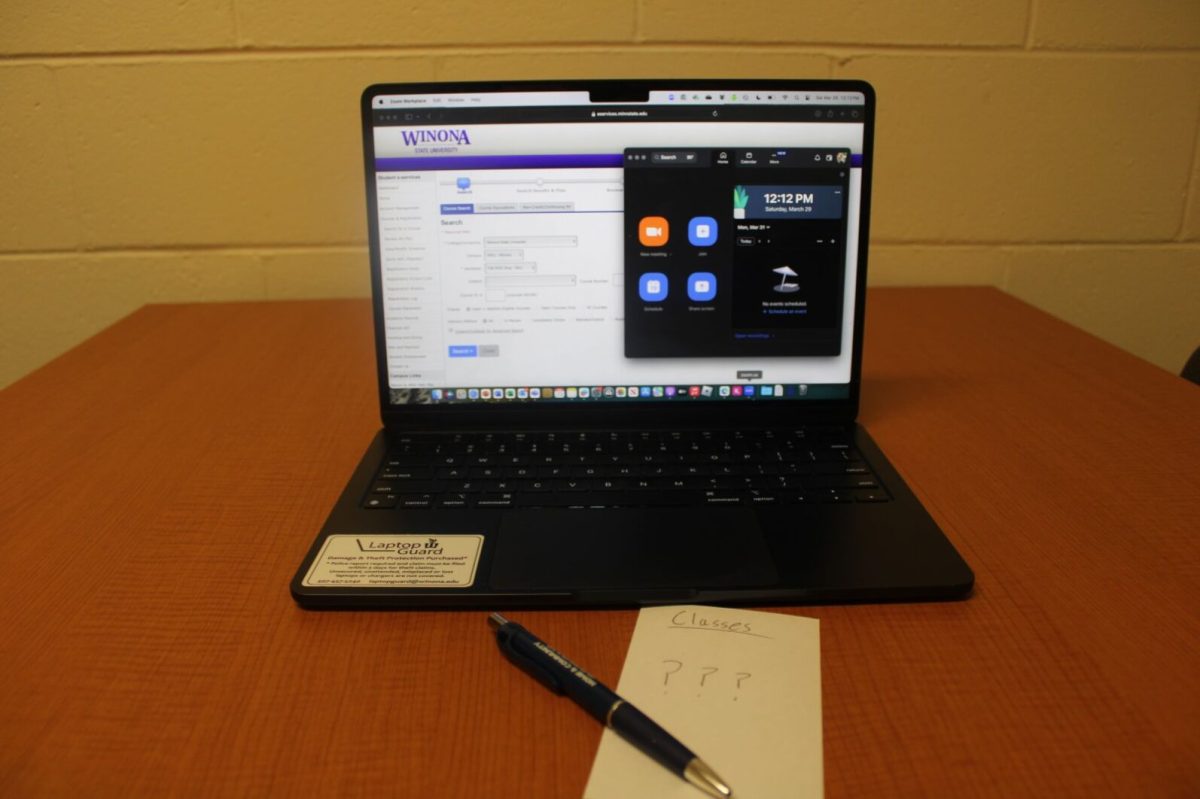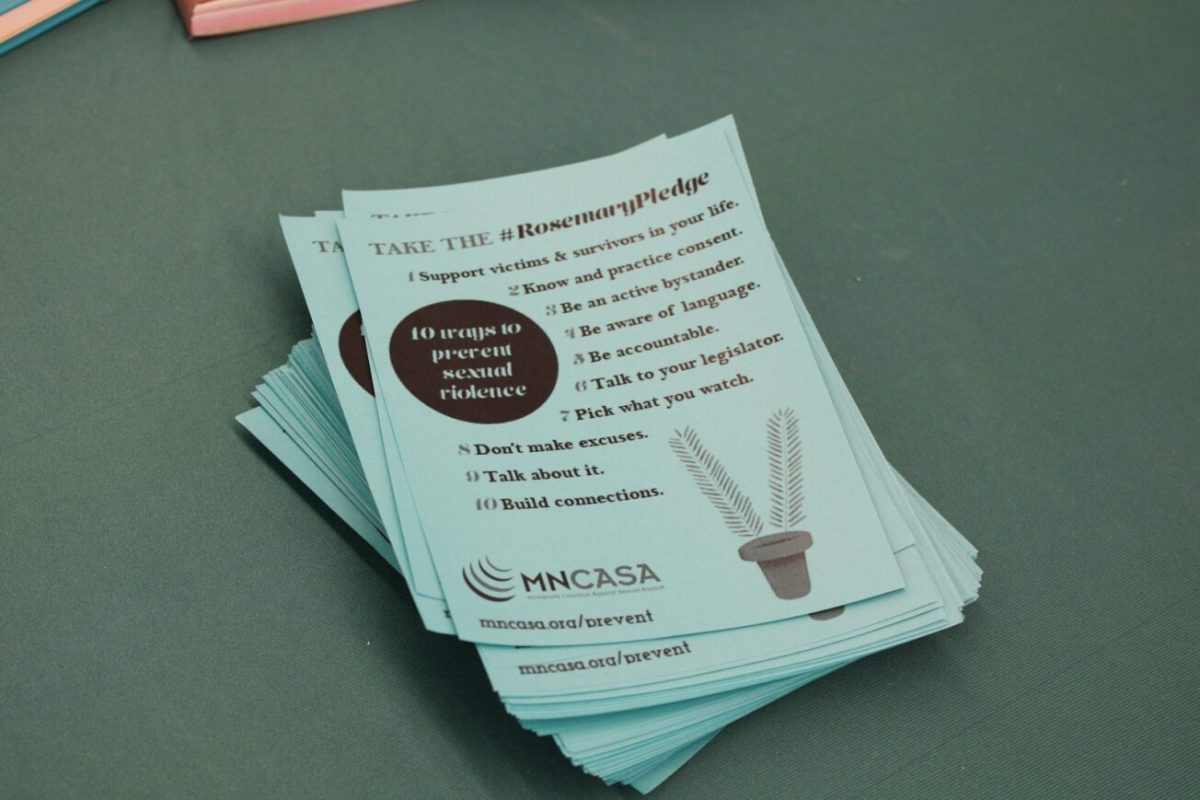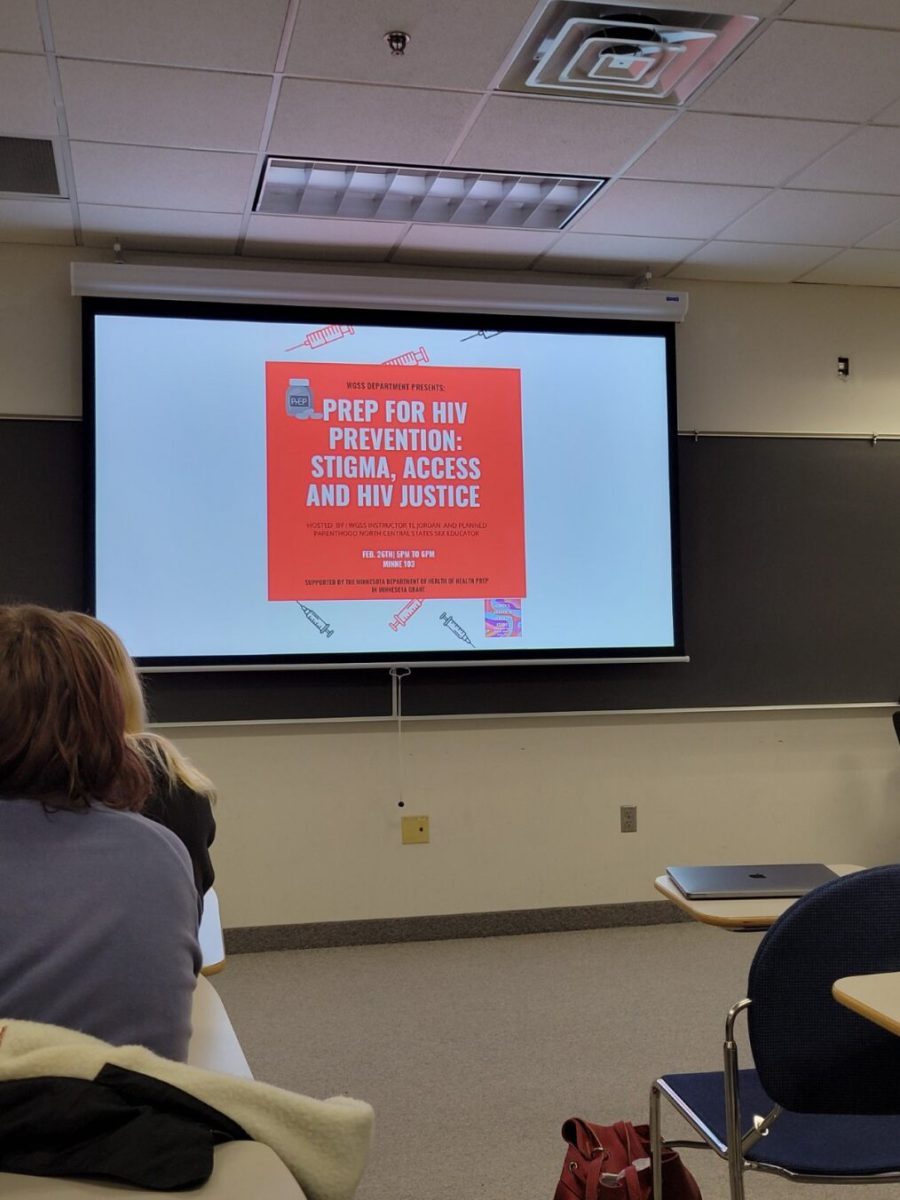Tips for students coping with stress in college
First-year nursing student Phoebe DeBates uses a whiteboard to study topics as a productive method she uses to study. Taking breaks and seeking meaningful activities to do every day helps her cope with stress with a heavy course load.
January 25, 2023
Spring semester can be seen as a fresh start not only to the new year and a new set of classes, but it can also be rife with new stressors.
According to Mayo Clinic, the reduced amount of sunlight in winter can lead to an increase in anxiety symptoms.
“Stress and college can go hand in hand,” Winona State University alumni, Kaitlyn Mercier said. “When students are feeling the weight, it’s important for them to remember that they are not alone.”
First-year student Rose Cases understands the stresses of college very well.
“I realized I was stressed about college before college even started,” Cases said. “Something that stresses me out is trying to find new friends and finding my crowd.”
Coming into a new environment where you might not know anyone can be a big stressor for anyone. Some ways Cases made friends was by being social in class and in her dorm, working in the Veterans Affairs Office on campus, and going to campus events.
“Stress has affected my sleep because it keeps me up at night,” Cases said. “It keeps me thinking and I can’t just quiet it down.”
While it may not be realistic for everyone to sleep a full 8 hours, setting a nighttime routine may help you get the sleep you need each night.
“My advice [to maintain stress] would be to drink lots of water.” Cases said.
In order to maintain a healthy mind you also need to keep a healthy body.
According to UnitedHealthcare’s StudentResources, “Your body and brain need fuel to achieve peak performance during the school year.” UnitedHealthcare recommends that students carry a refillable water bottle to stay hydrated and eat lean protein with various fruits and vegetables.
Exercise can also help reduce stress. From a short walk around campus to lifting weights at the Integrated Wellness Complex, any type of movement can be beneficial.
First-year nursing student Phoebe DeBates is used to feeling the pressures of stress.
“[Something that stresses me out is] the workload that comes with classes, especially when trying to really do well,” DeBates said. “I struggle to sleep because I am either busy with homework or too anxious about my homework to sleep well.”

This stressor is a common one that can have huge effects on students; there are many resources on campus that students can use to combat that. Counseling services are a popular option on campus. There are also other activities that can reduce stress like going to events on campus, playing games at the Student Activity Center, or climbing the rock wall at the Outdoor Education & Recreation Center.
A study environment can have huge effects on students and a bad environment can hinder a student’s ability to retain information. If studying or doing homework in certain environments isn’t beneficial, it might be a good idea to find a new environment until one works for you.
“[I maintain stress by] setting time for self-care and something I enjoy each night, even if it’s just for 15 minutes.” DeBates said.
Journaling can also be a good tool to use to organize and reflect on your thoughts. According to a survey done by habitbetter.com, out of more than 200 people surveyed, 74 percent of people who do or have journaled saw emotional venting as a benefit. In addition, 65 percent saw journaling improve their ability to manage stress. Sometimes organizing itself can be a stress reliever.
“[My advice for stressed students would be to] take time to yourself each day,” DeBates said. “Because the 15 minutes you spend taking care of yourself is nothing compared to the amount of time you study.”










































